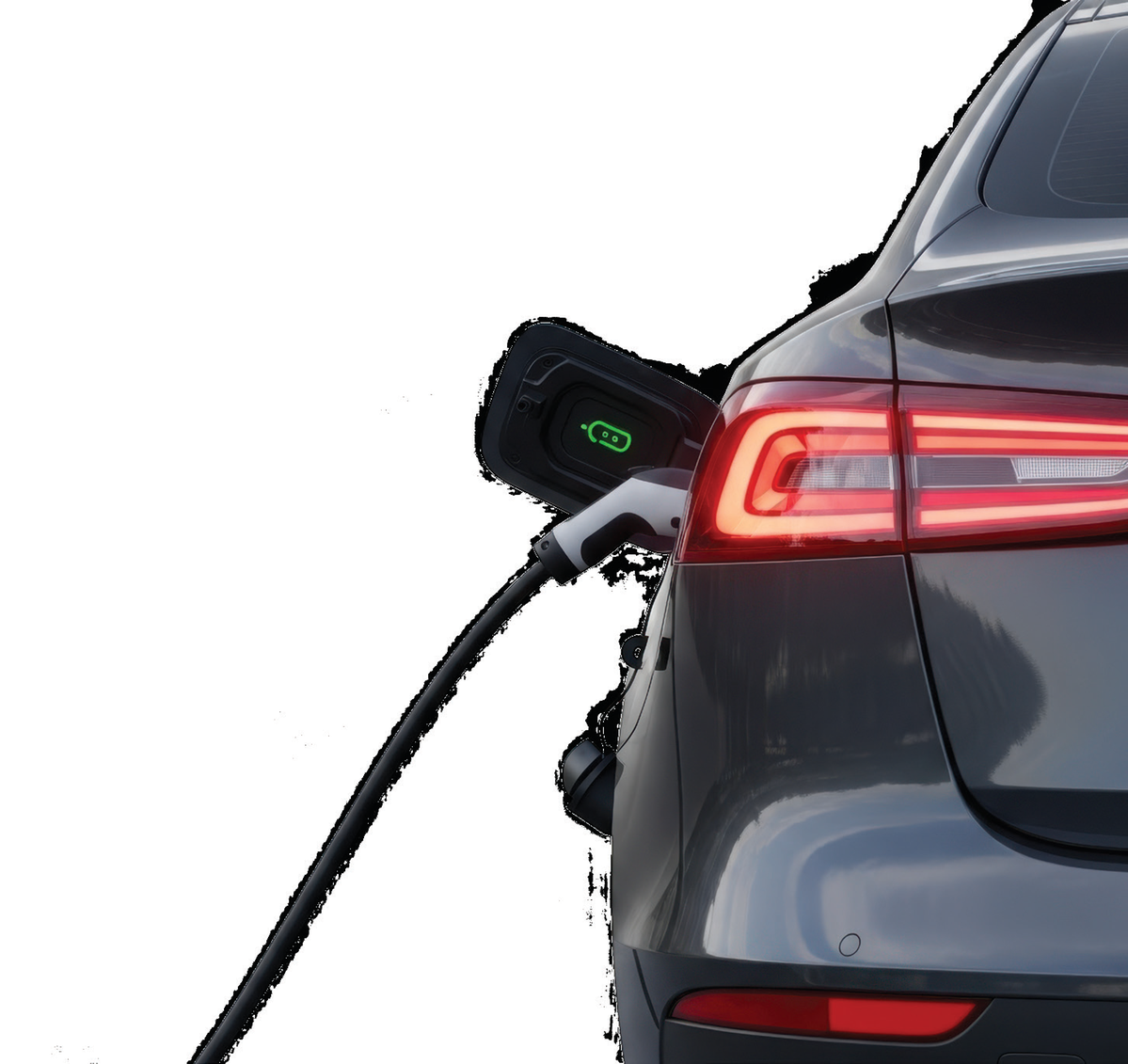Tokenization spurs asset liquidity
Innovative digital methods are reshaping investment opportunities in Hong Kong's electric vehicle sector, attracting broader participation and driving sustainable growth. Li Xiaoyun reports.


Editor's note: As Hong Kong positions itself to become a global digital assets hub, the spotlight is on the practical applications of cybertokens. In the second part of the Real-World Crypto series, China Daily explores tokenizing green assets to expand investment avenues, while acknowledging Hong Kong's challenges in scaling such projects.
Faced with the challenges of substantial upfront investments and lengthy payback periods, Linked Charge — a Hong Kong-based electric-vehicle charging service provider — is betting big on tokenization as a potential game changer.
We are "slicing" multimillion-dollar infrastructure investments into bite-sized units, says Tom Chik, the company's co-founder and chief executive officer. By lowering the investment threshold to "a few thousand Hong Kong dollars", tokenization will bring more investors to the table, he adds.
Linked Charge wraps the revenue and operational rights of EV charging stations into digital assets, which are then tokenized on blockchain. Each token represents a fractional share of the stations' future earnings. Through licensed platforms, investors can buy these tokens and, under the terms of smart contracts — self-executing programs encoded on the blockchain — automatically receive dividends based on the stations' performance.
As one of the world's most EV-friendly cities, the Hong Kong Special Administrative Region has seen its number of EVs jump eightfold in the past five years — from 14,000 to around 110,000 at the end of last year. Today, seven out of every 10 newly registered private vehicles in Hong Kong are electric. The exponential growth, however, has created massive demand for charging facilities, grid upgrades and advanced energy management systems, all of which entail large investments.
Government funding alone has reached billions of Hong Kong dollars. In July this year, the HKSAR government launched a HK$300 million ($38.61 million) Fast Charger Incentive Scheme, offering up to HK$100,000 per unit to support the construction of 3,000 fast-charging stations by private enterprises. This initiative builds on its earlier funding rounds totaling HK$3.5 billion, aimed at retrofitting parking spaces in private residential buildings with EV charging infrastructure.
Yet, even with government backing, the private sector must find ways to bridge the funding gap. By transforming infrastructure revenue into investable tokens, we aim to "diversify financing channels", Chik says.
For investors, such investments typically yield returns higher than bank deposits and with less volatility than equities. This appeals to those looking for stable cash flows, says Hugo Tang, chief financial officer of Linked Charge.
He explains that, for example, by tokenizing the revenue of a charging network into 10,000 tokens, each priced at HK$1,000, investors, once verified, can subscribe to these tokens through an online platform, which is expected to help the company raise HK$10 million. If the project offers an annual return of 6 percent, investors would earn a dividend of HK$60 per token per year.
Tang says the blockchain-based process ensures transparency and traceability, offering investors not only financial returns, but also a direct stake in Hong Kong's green energy transition.
Linked Charge isn't the only player. To revive illiquid assets and accelerate capital recycling, Eagoal New Energy Group — an e-bike battery leasing service provider based in East China's Anhui province — said earlier this year it had tokenized the operational and revenue data of its nationwide network of battery-swapping cabinets and lithium batteries.
An expanding circle
Along with these real-world asset (RWA) owners, other key players across the value chain — from technology suppliers to licensed financial institutions — are stepping in to flesh out the ecosystem.
Cobo, one of the largest institutional crypto custodians and wallet infrastructure providers, is participating in Hong Kong digital hub Cyberport's Web3 Pilot Scheme, with its project sponsored by JD Technology, a subsidiary of Chinese e-commerce giant JD.
The initiative aims to build a tokenization infrastructure and technology platform featuring automated yield distribution and multi-stablecoin support, designed to align with Hong Kong's regulated stablecoin framework.
Cobo's Chief Operating Officer Lily King says the project underscores Hong Kong's growing role as a bridge between traditional finance and digital assets, accelerating institutional adoption across the region.
Such cooperation in August won support from the Blockchain and Digital Asset Pilot Subsidy Scheme rolled out by Cyberport, joining four other projects focused on objectives, such as the tokenization of maritime assets and developing an open architecture for automating RWA processes.
The same month, as Hong Kong's Stablecoins Ordinance came into effect and gave industry players a buzz, local brokerage firm Victory Securities inked a memorandum of understanding with Caocao — a ride-hailing platform under Chinese automaker Geely. They will jointly explore RWA tokenization, the adoption of stablecoin-based payment solutions, and the potential of digital-asset issuance.
Kennix Chan, deputy CEO of Victory Securities, says that besides managing funds and distributing tokens, the company will design a legal structure in line with Hong Kong law for Caocao, ensuring the compliant cross-boundary transmission of cash flows from the Chinese mainland to Hong Kong, and assisting in securing regulatory approval from Hong Kong's Securities and Futures Commission.
As providers of technology and financial services fall into place, the ultimate success of the RWA tokenization market hinges on its ability to attract investors. In Hong Kong, "the profile of investors has grown increasingly diverse since 2024", according to Yao Qing, associate partner of the tokenization division at HashKey Group.
The combination of Hong Kong's protokenization policies, government-backed programs and an advancing regulatory framework has drawn a more varied range of investors into the fold, says Yao.
Two years ago, investing in RWA tokenization appealed to only a limited group of Web3-native investors, but today, there is growing interest from conventional financial institutions, such as brokerages and private banks, as well as the city's traditional wealth powerhouses — family offices and high-net-worth individuals — Yao says.
A missing puzzle piece
Although Hong Kong has made great strides in establishing the RWA ecosystem, industry insiders believe the sector remains in its infancy, still groping for a "best case "that's compelling enough for investors and capable of resolving a litany of challenges covering technology, compliance and operational complexities.
For instance, a green energy tokenization project backed by a Chinese tech giant has so far attracted just two investors, while another initiative tokenizing financial assets launched by a major bank involves only one investor, says King.
One factor curbing participation is that most tokenized projects are limited to professional and institutional investors, leaving retail investors on the sidelines. Meanwhile, even as there will be more tokenization products available for retail participants in future, it does not mean they can all sell well.
King says "the crypto market today is different from a year ago" when on-chain yields were distressed, and tokenized treasury bonds and money market funds offering a modest"5 percent annual return" seemed attractive.
Now a flourishing on-chain activity driven by the surge in cryptocurrency prices, including bitcoin and ethereum, has reset investor expectations.
According to King, investors can earn double-digit annualized returns simply by holding and staking stablecoins on some trading platforms, making the single-digit payouts typical of tokenized RWAs appear underwhelming by comparison.
Another bottleneck is the lack of a functioning secondary market for RWA tokens in Hong Kong. Under current regulations, tokenized assets are restricted to the primary market, meaning investors can only exit through buybacks or redemptions rather than trading freely among themselves. This would undermine the very objective of tokenization — injecting liquidity into traditionally illiquid assets.
To build a comprehensive RWA ecosystem, Hong Kong must establish a robust secondary market, urges Chan. Achieving this requires the active involvement of market makers whose role is to ensure liquidity by continuously quoting buy and sell prices.
For now, he says, the cost of market making remains high, and this would be ultimately passed on to exchanges or issuers, and inflate the overall cost of operating a secondary market. This is because most RWA tokens are listed on only one or a handful of exchanges in their early stages, leaving market makers with no other venues to offset their exposure once they take a position.
By comparison, with cryptocurrencies like bitcoin traded across multiple exchanges, a market maker who buys a large position on one platform can almost instantly sell an equivalent amount on another at a similar price, thereby hedging away price volatility.
Chan says market-makers are still awaiting a more "balanced "ecosystem that's deep and liquid enough to draw those now active in equities and virtual assets into the business of RWA tokens.
A foot in the door
The challenges are significant, but so too is the potential. Industry insiders argue that Hong Kong's regulatory clarity, coupled with its strong policy support and growing institutional involvement, has made the city equipped to transform tokenization from the current proof-of-concept stage into a scalable financial solution.
The RWA ecosystem is multi-dimensional, and Hong Kong has built "a very strong foundation", says Yao.
The Policy Statement 2.0 on the Development of Digital Assets, released in June, outlined plans to expand the suite of tokenized products, starting with standardized financial assets with clear legal structures. The road map includes exploring secondary market use cases for tokenized government bonds and enabling the secondary market trading of tokenized exchange-traded funds on licensed digital asset platforms.
This policy clarity has set the stage for a diversified range of participants and laid the groundwork for the tokenization of non-financial assets. Over a dozen traditional financial institutions, tech giants, and blockchain-native firms have launched or announced RWA projects in Hong Kong. They span a wide array of underlying assets, such as gold, green energy infrastructure, and agricultural commodities, with some already raising more than HK$100 million.
"We have seen overwhelming institutional interest. Every institution, even the most conservative one, wants to talk to us about RWA," says King.
Cobo set up its Hong Kong office in 2018, years before launching its Singapore headquarters. "We think, strategically, Hong Kong is the venue for things to happen."
Contact the writer at irisli@chinadailyhk.com

- Tokenization spurs asset liquidity
- National Games vibe is everywhere in Guangzhou
- Forum unites global experts to enhance city image communication
- Miao New Year celebrations get underway in Guizhou's Leishan county
- Mainland spokesman reiterates stand on Taiwan
- Fujian county's rural development becomes a big draw for Taiwan investors





































